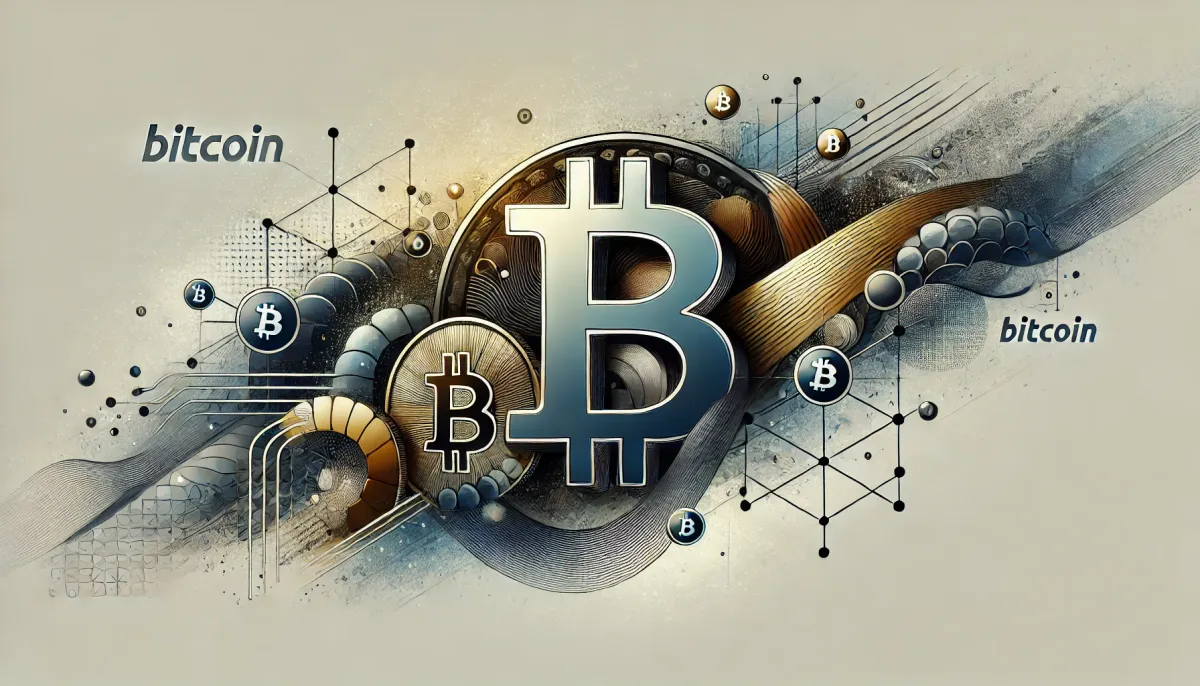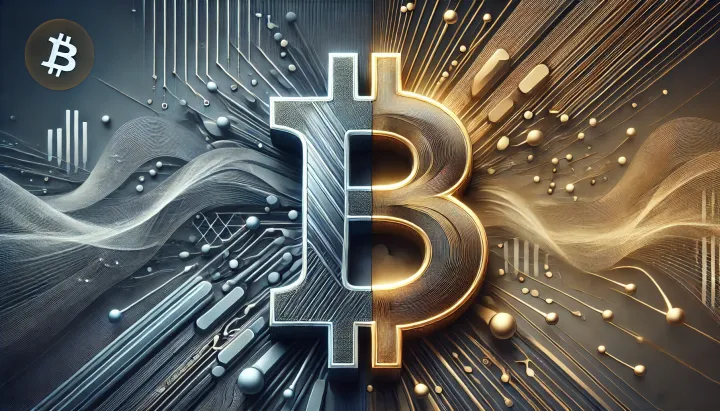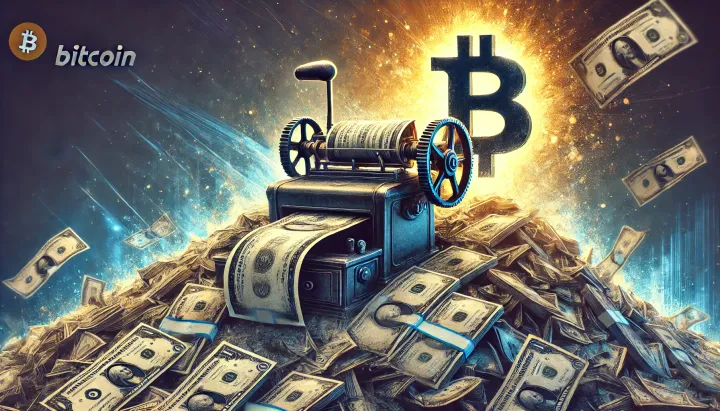The Inflationary Future: Insights on U.S. Debt and Bitcoin’s Role from Lawrence Lepard
The October 5, 2024 episode of the Stephan Livera Podcast featured Larry Lepard, who discusses the pressing economic issues surrounding government debt, inflation, and how they intersect with investments in Bitcoin and gold.

Briefing Notes
My 'briefing notes' summarize the content of podcast episodes; they do not reflect my own views. If you have comments about this briefing note, please leave a comment below (requires signing up for a free blog subscription). Note that some of the podcast episodes I summarize may be sponsored: don't trust, verify, if the information you are looking for is to be used for decision-making.
Summary
The October 5, 2024 episode of the Stephan Livera Podcast featured Larry Lepard, who explores the severe implications of rising U.S. government debt and monetary policy, and warns of escalating inflation as central banks continue to print money. He predicts that Bitcoin will surge to $350,000 as the next wave of monetary debasement hits, positioning Bitcoin and gold as essential hedges against the devaluation of fiat currencies. His analysis underscores the urgent need for sound money in the face of a potential economic reset.
Take-Home Messages
- The escalating U.S. national debt creates a major risk of inflation, and without fiscal reform, monetary debasement will continue.
- Bitcoin and gold will be crucial in hedging against monetary debasement as the Federal Reserve relies on inflation to manage the debt crisis.
- Central banks will prioritize inflation over deflation, ensuring that fiat currencies lose value, making sound money assets like Bitcoin vital for investors.
- Bitcoin’s price could surge dramatically, potentially reaching $350,000, as it outperforms gold due to its technological advantages and scarcity.
- The global financial system may face a reset, with hard assets such as Bitcoin and gold becoming the cornerstone of a new economic order.
Overview
Larry Lepard presents a detailed analysis of the U.S. fiscal crisis, focusing on the unsustainable national debt and the government’s reliance on printing money to service it. With over $35 trillion in debt, the U.S. economy is on a dangerous path toward inflationary collapse. Lepard argues that this growing debt, combined with rising labor costs and central bank policies, will make inflation inevitable, as governments avoid deflationary collapses at all costs.
Lepard highlights the historical trend of monetary debasement, pointing out that nations like Venezuela, Zimbabwe, and others followed a similar path. However, the U.S., as the issuer of the world’s reserve currency, adds complexity to this equation. Central banks are likely to keep interest rates low, prioritizing short-term stability while driving long-term inflation.
Turning to Bitcoin, Lepard forecasts that its role as digital gold will gain more traction as investors seek a hedge against the collapsing value of fiat currencies. He predicts that during the next major monetary crisis, Bitcoin’s price could soar to $350,000 due to its scarcity and growing adoption curve. While gold will remain a strong store of value, Lepard argues that Bitcoin’s potential for growth far exceeds gold’s, making it a more attractive investment.
The conversation concludes with a discussion of the potential for an economic reset, where the unsustainable debt levels, combined with rising inflation, will force a shift toward sound money. In this scenario, Bitcoin and gold will play central roles in the new financial order, as fiat currencies lose credibility.
Stakeholder Perspectives
- Institutional Investors are cautious about Bitcoin’s volatility but recognize its potential as a hedge against inflation. They are increasingly allocating a portion of their portfolios to hard assets such as Bitcoin and gold.
- Policymakers are focused on preventing deflationary collapses and are more willing to tolerate inflation to manage the national debt. Their challenge lies in balancing short-term economic stability with long-term fiscal responsibility.
- Retail Investors are turning to Bitcoin and gold to protect their wealth from inflation. Many are concerned about the devaluation of fiat currencies and are seeking more secure, long-term stores of value.
- Economists are divided, with some warning of hyperinflation and others advocating for controlled inflationary policies. The debate centers on whether current monetary policies can stabilize the economy without triggering a larger crisis.
Implications
The insights from this podcast indicate that inflation will be a defining characteristic of the global economy in the coming years. As central banks continue to print money to manage the growing national debt, inflationary pressures will erode the value of fiat currencies. This will push investors toward sound money assets such as Bitcoin and gold, which are expected to see substantial gains.
For investors, the implications are clear: holding traditional assets such as bonds may become increasingly risky as inflation accelerates. Bitcoin’s role as digital gold will grow in prominence, offering a hedge against currency devaluation. Meanwhile, policymakers must navigate a difficult balancing act, avoiding deflationary collapse while managing inflation and debt. Failure to address these issues could lead to a broader economic reset, where sound money becomes the foundation of the new financial system.
Future Outlook
Looking ahead, Lepard predicts two more economic cycles before a significant reset occurs. In the short term, Bitcoin’s price is expected to rise as inflation accelerates, driven by increased adoption and its role as a hedge against fiat currency devaluation. Gold will also benefit from this environment, but Bitcoin’s growth potential far exceeds that of traditional assets.
In the longer term, the U.S. government may be forced to implement drastic measures, such as an economic reset, to manage the unsustainable debt burden. In such a scenario, hard assets like Bitcoin and gold will likely play a central role in stabilizing the global financial system. Investors who position themselves early in these assets may be well-protected against the coming economic storm.
Information Gaps
- How can institutional investors mitigate Bitcoin’s volatility while benefiting from its growth potential? Understanding the strategies for managing Bitcoin’s volatility while retaining exposure to its upside is key for larger investors. Research should explore hedging mechanisms and portfolio diversification techniques to reduce risk.
- What are the macroeconomic impacts of continued U.S. monetary policy? This question seeks to assess how sustained inflationary monetary policies will affect global financial stability, asset prices, and investor behavior over the next decade.
- How does continued monetary debasement affect the U.S. dollar’s status as the global reserve currency? As monetary debasement progresses, it’s crucial to understand the potential shifts in the global financial system, including whether the U.S. dollar will remain the dominant reserve currency.
- How likely is hyperinflation in the U.S., and how can investors protect themselves? Assessing the probability of hyperinflation in the U.S. and identifying strategies to protect wealth will provide critical insights for investors and policymakers alike.
- What factors are limiting Bitcoin’s adoption as a mainstream asset class, and how can they be overcome? Understanding the barriers to Bitcoin adoption and exploring regulatory, technological, and market-based solutions will help drive broader acceptance of Bitcoin as a legitimate store of value.
Broader Implications
Bitcoin’s Role as Sound Money
As U.S. government debt continues to grow, the erosion of trust in fiat currencies will likely drive more investors to seek refuge in assets that maintain purchasing power over time. Bitcoin’s scarcity, decentralized nature, and growing adoption will reinforce its position as the primary digital store of value. In this environment, Bitcoin could see significant price increases as it becomes a preferred asset for wealth preservation, especially in times of heightened economic instability.
Impact on Global Financial Systems
Lepard’s analysis highlights a growing threat to the U.S. dollar’s status as the world’s reserve currency. Continued monetary debasement could undermine global confidence in the dollar, prompting both sovereigns and institutional investors to diversify away from it. Should this shift gain momentum, the global financial system could pivot toward hard assets such as Bitcoin and gold. This scenario would not only accelerate Bitcoin adoption but also force central banks and governments to rethink their fiscal strategies to maintain relevance in a world that increasingly favors decentralized and transparent financial systems.
Inflation and Investment Strategies
With inflation emerging as the dominant threat in the next economic cycle, investors will need to adjust their strategies to safeguard against the loss of value in traditional assets. Bonds and equities, which have historically been cornerstones of portfolio construction, may lose their appeal as inflation erodes real returns. Bitcoin and gold will likely play central roles in the new paradigm of wealth preservation. The demand for inflation-resistant assets could also spur financial innovation, leading to the development of new investment vehicles focused on sound money and inflation hedges. Investors who position themselves early in this transition may benefit disproportionately from the potential gains.
Economic Policy and Global Leadership
Lepard’s commentary suggests that the U.S. government’s handling of its fiscal challenges will have far-reaching implications beyond its borders. As inflation becomes more entrenched, the government’s ability to manage domestic and global leadership will come into question. In such a scenario, alternative financial systems based on Bitcoin could emerge as serious contenders to the fiat-based system that has governed global trade and finance for decades. Policymakers worldwide will need to grapple with the growing influence of Bitcoin, which could prompt regulatory frameworks that support or hinder its broader adoption. Nations that fail to adapt to this shift may find themselves at a disadvantage in the global economic landscape.
Market Volatility and Reset Potential
Lepard’s prediction of a potential economic reset underscores the volatility that markets may face in the coming years. This reset could be triggered by unsustainable debt levels, runaway inflation, or a combination of both, leading to significant disruptions in global financial markets. Bitcoin’s decentralized nature and provable scarcity could make it one of the few assets capable of retaining value through such a period of upheaval. Investors, institutions, and policymakers must prepare for the possibility of major market corrections and the adoption of new financial norms centered around sound money principles. Bitcoin, as the most prominent of these assets, will likely be at the forefront of this transition.



Comments ()